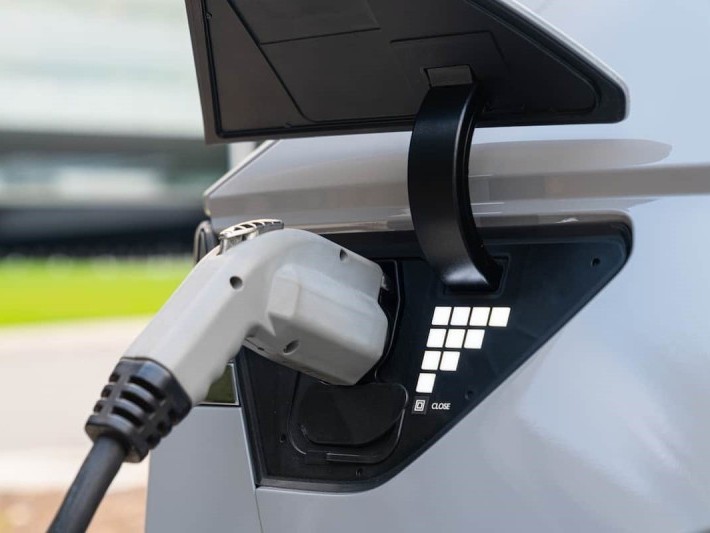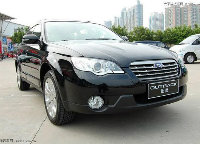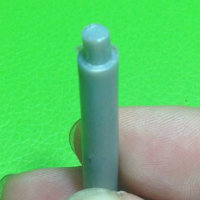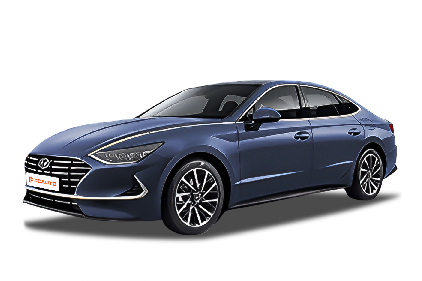Q
Is Hyundai Sonata a fast car?
Whether the Hyundai Sonata is a "fast car" depends on how you define "fast". The 2020 Hyundai Sonata 2.5 Premium version can reach a top speed of 210 km/h, while both the 2017 Hyundai Sonata 2.0 Elegance version and the 2017 Hyundai Sonata 2.0 Executive version have a top speed of 200 km/h. Compared with some ordinary city cars whose top speed may be around 160 - 180 km/h, the Sonata has a relatively high top speed, which shows that it can reach a relatively high speed level. However, compared with high - performance sports cars that can easily exceed 300 km/h, the Sonata may not be considered very fast. Under normal road conditions, due to speed limits and traffic conditions, the Sonata rarely reaches these top speeds. For safety reasons, it's crucial to always drive within the legal speed limits.
Special Disclaimer: This content is published by users and does not represent the views or position of PCauto.
Related Q&A
Q
What is the life expectancy of Hyundai Sonata Hybrid?
The service life of the Hyundai Sonata Hybrid can vary depending on multiple factors. Generally speaking, the battery of the Sonata Hybrid usually lasts about 5 years. As for other components, Hyundai offers a 5 - year or 300,000 - kilometer warranty for the whole vehicle, which reflects the expected durability of the vehicle under normal use conditions. The warranty periods for some core components, such as the power battery assembly, drive motor assembly, motor controller assembly, and vehicle controller assembly, are even longer, sometimes up to 8 years or 150,000 kilometers. Regular maintenance, good driving habits, and usage conditions all play important roles. If properly maintained, serviced on time, and driven carefully, this car has the potential to serve you for over 10 years and cover a mileage of as much as 200,000 kilometers or more.
Q
Which model of Hyundai Sonata is the most expensive ?
Currently, the most expensive model of Hyundai Sonata in Malaysia is the Sonata N-Line version, with an official price of approximately RM218,888 (excluding insurance). This high-performance version is equipped with a 2.5L Turbo GDi four-cylinder engine, capable of outputting 290 horsepower and 422 Nm of torque. Paired with an 8-speed wet dual-clutch transmission and front-wheel drive, it can accelerate from 0 - 100 km/h in just 6.2 seconds.
Compared with the standard Sonata (equipped with a 1.6L Turbo or 2.0L naturally aspirated engine), in addition to its powerful performance, the N-Line is equipped with a sport-tuned suspension, 19-inch wheels, an exclusive N Line exterior kit (including a more aggressive aerodynamic design and quad exhaust pipes), and an all-black interior with red stitching, giving it an overall sporty coupe style.
Although it's price is high, the N-Line version offers a comprehensive configurations, including the advanced Hyundai SmartSense active safety system (such as SCC Smart Cruise Control and FCA Forward Collision Warning), a panoramic sunroof, and a Bose sound system. It's a great choice for consumers who seek both performance and luxury.
Q
How about the speed performance of Hyundai Sonata?
The speed performance varies among different models of the Sonata. The top speed of the 2020 Hyundai Sonata 2.5 Premium can reach 210 km/h, while the top speeds of the 2017 Hyundai Sonata 2.0 Elegance and Hyundai Sonata 2.0 Executive are 200 km/h. These figures reflect the vehicle's potential in terms of power performance. However, in actual driving, it's difficult to reach the vehicle's top speed due to factors such as road conditions, traffic regulations, and driving behavior. For example, the speed limits on ordinary city roads are usually quite low. Although the speed limits on highways are relatively higher, it's not allowed to speed at will. It is recommended that everyone abide by the regulations while driving, reasonably control the speed according to the actual situation, and ensure driving safety.
Q
What's the engine displacement of Hyundai Sonata?
Different models of Sonata have various engine displacements. For example, the 2020 Hyundai Sonata 2.5 Premium is equipped with an engine with a displacement of 2497cc, which can provide ample power to meet the needs of daily driving and some driving scenarios with power requirements. As for the 2017 Hyundai Sonata 2.0 Elegance and Hyundai Sonata 2.0 Executive, their engines have a displacement of 1999cc. Relatively speaking, they may perform better in terms of fuel economy and can also provide stable power output for the vehicle. Engines with different displacements each have their own characteristics. Consumers can choose the model that suits them according to their own driving habits, such as the demand for power and considerations regarding fuel consumption.
Q
What's the service life of Hyundai Sonata's spark plugs?
The service life of the Hyundai Sonata's spark plugs depends on their types. The more affordable nickel alloy spark plugs typically last about 20,000 - 30,000 kilometers. Platinum spark plugs, with better heat and corrosion resistance, can be used for 60,000 - 80,000 kilometers. Iridium spark plugs, known for their high ignition performance, usually have a service life of 80,000 - 100,000 kilometers or even longer.
However, other factors can also have an impact. If the vehicle often drives under harsh conditions such as extreme temperatures, high humidity, and dusty areas, or experiences frequent starting and stopping, the spark plugs may wear out more quickly. Aggressive driving habits like rapid acceleration and hard braking can also increase the engine load and accelerate the aging of the spark plugs. Therefore, although the above are general reference standards, it's very important to regularly check the condition of the spark plugs and follow the vehicle maintenance manual for optimal performance.
Q
Does Hyundai Sonata have spark plug wires?
Yes, Hyundai Sonata is equipped with spark plugs, but it doesn't have the traditional externally exposed spark plug wires. Spark plugs are crucial components in the engine's ignition system, as they generate electric sparks to ignite the air - fuel mixture in the engine's combustion chamber, enabling the engine to operate properly.
With the development of modern automotive technology, many vehicles, including the Hyundai Sonata, have adopted the Distributorless Ignition System (DIS) or the Direct Ignition System (DI). In these systems, the ignition coils are directly installed on top of the spark plugs, providing high - voltage electricity directly to the spark plugs. They no longer rely on the traditional long spark plug wires to transmit high - voltage electricity.
This design reduces electromagnetic interference, improves ignition efficiency and engine performance, and also decreases the likelihood of spark plug wire failures, such as electrical leakage and aging. At the same time, it enhances the overall reliability of the vehicle and its fuel economy.
Q
How many cylinders does Hyundai Sonata have?
Whether it's the regular version or the N-Line version, the Sonata features a 4-cylinder (inline-four) engine layout, which is also a common engine configuration for mainstream mid-size sedans these days. This setup can not only deliver decent power output but also balance it with fuel efficiency. Hyundai has invested lot in developing turbocharged engine technology in recent years. For example, the SmartStream series of engines has optimized combustion efficiency and reduced emissions, enabling the four-cylinder engine to achieve performance comparable to that of a six-cylinder engine. If car owners prefer more potent power, they might need to consider higher-end rear-wheel-drive or all-wheel-drive performance cars. However, for general family use or mild sporty driving needs, the 1.6T or 2.5T four-cylinder engines are good enough for daily driving and highway cruising.
Q
How much does it cost to change Hyundai Sonata's spark plugs ?
The cost of replacing the spark plugs of Hyundai Sonata ranges from approximately RM200 to RM500, depending on the model year, engine type (1.6T or 2.5T), and the brand of spark plugs used (such as NGK, Denso, or original factory parts). A standard 1.6L Turbo engine usually uses iridium or platinum spark plugs, which cost around RM50 to RM150 each. On the other hand, the 2.5L Turbo engine (N - Line version) may require higher - performance spark plugs, which are slightly more expensive (around RM80 to RM200 each).
In addition, labor costs typically range from RM80 to RM150. Dealerships may charge more, providing factory - certified parts. Third - party repair shops offer lower prices, but you need to make sure the technicians perform well in the operation.
The spark plug replacement interval for the Hyundai Sonata is generally between 60,000 and 100,000 kilometers. However, if your vehicle experiences vibrations, has difficulty starting in cold weather, or shows an increase in fuel consumption, you may need to check the spark plugs earlier. It's recommended that owners have technicians inspect the spark plugs during regular maintenance and choose high - quality spark plugs that can withstand high temperatures and resist carbon deposits to ensure optimal engine combustion efficiency.
Q
How many spark plugs does Hyundai Sonata have?
Hyundai Sonata usually has four spark plugs. This is because most Sonata models are equipped with four-cylinder engines, and in gasoline engines, each cylinder is typically assigned one spark plug. Spark plugs play a crucial role in the operation of the engine. They are responsible for igniting the air-fuel mixture in the cylinders, enabling the engine to generate power. For example, the 2020 Hyundai Sonata 2.5 Premium and the 2017 Hyundai Sonata 2.0 Elegance/Executive models are both equipped with four-cylinder engines, and these models all have four spark plugs. Regularly inspecting and timely replacing the spark plugs according to the vehicle's maintenance schedule helps ensure smooth engine operation, good fuel efficiency, and reliable vehicle performance.
Q
How often should I change the spark plugs in my Hyundai Sonata?
The frequency of replacing the spark plugs in your Hyundai Sonata depends on the type of spark plugs installed. Nickel alloy spark plugs are affordable, but they have a short service life. You should consider replacing spark plugs when the vehicle has traveled about 20,000 - 30,000 kilometers. Platinum spark plugs are known for their good heat resistance and corrosion resistance and can be used for 60,000 - 80,000 kilometers. Iridium spark plugs have high ignition performance, and their service life is generally 80,000 - 100,000 kilometers or even longer.
In addition, the operating conditions of the vehicle also affects the service life of spark plugs. If you often drive in harsh environments such as extreme heat, humidity, and dust, or frequently start and stop the vehicle, or have a habit of aggressive driving, the spark plugs may wear out fast, and you may need to replace them early. Regularly refer to the vehicle's owner's manual, as it may provide more specific guidance for your Sonata model.
Latest Q&A
Q
Does the 2020 Honda Accord have transmission problems?
The 2020 Honda Accord has performed well overall in the Malaysian market. Its CVT and 10-speed automatic transmissions (depending on the trim) are technically mature, with most owners reporting smooth and reliable operation. However, some isolated cases may experience slight low-speed hesitation or delayed shifting, which are common characteristics of CVT transmissions rather than malfunctions. Honda Malaysia has not issued any large scale recalls or technical bulletins for this model regarding the transmission. It is recommended to check the transmission fluid condition during regular maintenance to ensure optimal performance. For consumers considering a used 2020 Accord, it is advisable to conduct a pre-purchase inspection through an authorized Honda service center, focusing on reading transmission fault codes and historical data. Notably, while CVT transmissions are known for their fuel efficiency, driving style can affect their lifespan. It is recommended to avoid frequent hard acceleration to extend component longevity. If unusual shifting vibrations or warning lights appear, contact an authorized Honda service point promptly for professional diagnosis. All Honda service centers in Malaysia are equipped with dedicated diagnostic equipment to quickly identify issues.
Q
What year to avoid Accord?
In Malaysia, the Honda Accord is a popular mid-size sedan, but certain model years can have some common issues that buyers should watch out for when shopping around. Based on owner feedback and expert reviews, some 2013 and 2014 Accord models had problems with transmission jerking and electronic system glitches, especially the CVT-equipped versions, which might develop rough shifting after long-term use. Additionally, owners of 2008 to 2010 Accords have reported higher fuel consumption and suspension noises. While these don't affect driving safety, they could increase long-term maintenance costs. If you're buying a used Accord, it's better to prioritize models from 2015 onwards—they saw significant improvements in reliability and fuel efficiency. Malaysia's hot and humid climate means you should also pay extra attention to the car's air conditioning system and electrical wiring when checking it out. Regular maintenance can really help extend the vehicle's lifespan. If your budget allows, the new Accord's hybrid system performs better in terms of fuel savings and driving experience, making it a good fit for buyers who value eco-friendliness and comfort.
Q
Which is better, the 2019 or the 2020 Honda Accord?
Both the 2019 and 2020 Honda Accord are really popular mid-size sedans in the Malaysian market. They don't differ much in core specs, but the 2020 model gets some nice detail upgrades. On the outside, the 2020 Accord has subtle tweaks to the front grille and wheel designs, giving it a more modern look, plus there are new exterior color options. Inside, the 2020 version comes standard with an 8-inch infotainment screen and an upgraded Honda Sensing safety suite, including more responsive adaptive cruise control and lane-keeping assist – features that were optional on some 2019 trims. Under the hood, both models offer the 1.5T turbo engine or the 2.0L hybrid system, with similar fuel economy, but the 2020's CVT transmission feels smoother in its tuning. For Malaysian buyers, if your budget allows, the 2020's upgraded features are worth considering, especially the improved safety tech which is really handy for daily driving. It's worth noting that 2019 models might offer better value in the used car market, but make sure to check the service records carefully if you go that route. The Honda Accord is known in Malaysia for its reliability and low maintenance costs, so both model years are solid picks – it just comes down to your budget and how much you want the newer features.
Q
Which year of Accord is most reliable?
In the Malaysian market, the Honda Accord is a favorite among consumers for its reliability and durability, especially the ninth-generation models produced from 2013 to 2017, which deliver an outstanding overall performance. This generation comes with an optimized 2.4-liter naturally aspirated engine or a 3.5-liter V6, offering smooth power delivery and decent fuel efficiency. It's paired with either a CVT or 6-speed automatic transmission—both mature technologies with low failure rates. Additionally, the ninth-gen Accord features a solid body structure and a well-tuned chassis that balances comfort and handling, making it suitable for Malaysia's diverse road conditions. If your budget is tight, the eighth-generation Accord (2008–2012) is also a solid pick, though keep in mind that some high-mileage used units may have issues like worn steering gears or suspension bushings. When shopping for a used Accord, prioritize checking regular maintenance records and pay close attention to the upkeep of critical components like transmission fluid and timing chains. As for hybrid versions, the i-MMD system in the tenth-generation Accord (2018 onwards) performs reliably, but battery life will gradually decline with years of use—professional testing is recommended before purchase. Overall, the Accord ranks among the most reliable in its class, and with proper maintenance, it can stay in great shape for the long haul.
Q
How long will a 2020 Accord last?
The 2020 Honda Accord can typically clock 200,000 to 300,000 kilometers or more with regular maintenance and proper use. Its actual lifespan depends on the owner's driving habits, how often it's serviced, as well as road conditions and climate in Malaysia. Under the hood, it’s packing Honda’s reliable Earth Dreams engine paired with a CVT transmission—proven tech with solid durability. Sticking to regular oil changes, transmission fluid replacements, and maintaining key components like the brakes and suspension can seriously extend its road life. Malaysia’s hot and humid weather might take a toll on rubber parts (think belts and seals) and the battery, so it’s a good idea to check these every six months and opt for original or high-quality replacement parts. Also, the Accord holds its value pretty well in Malaysia’s used car market, and a solid service history can bump up its resale price even more. For long-term ownership, follow the official maintenance manual and head to authorized Honda service centers for upkeep—you’ll get professional technical support and genuine parts that way. If you’re planning to keep it for the long haul, consider periodic deep maintenance too, like fuel system cleaning and coolant replacement, to keep the car in top shape.
View MoreRelated News

In Malaysia, which sliding door MPVs are available?
MichaelOct 30, 2025

Modern Ioniq 5 N Lands in Malaysia: Track-Level Performance Electric Vehicle is Here, Priced Possibly Below RM 400,000?
JohnSep 10, 2025

Hyundai's Big Return to Malaysia: Top 5 Models Expected
MichaelMay 30, 2025

580,000 km & 87.7% Battery Health: Ioniq 5’s Incredible Durability
MichaelMay 6, 2025

Revolutionizing Hybrids: Hyundai’s New System vs. Toyota's Hybrid System
Kevin WongApr 22, 2025
View More
















Pros
Cons